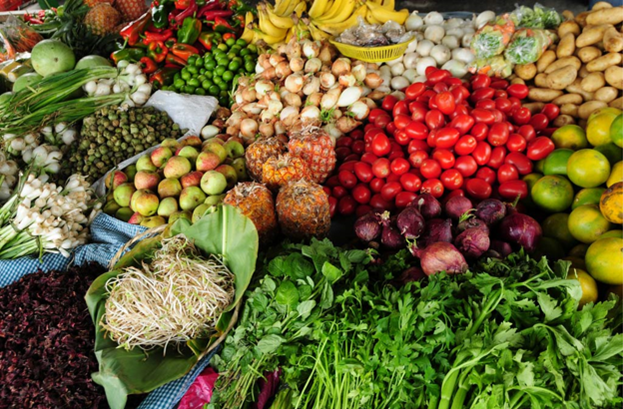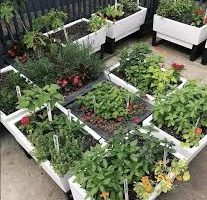
Currently, Ethiopia receives 76% of its export earnings from its agricultural product such as Coffee, Oilseeds, Chat, Pulses, Cut Flowers, Fruits, Vegetables, Dairy and meat are among others. The first five commodities cover 28.7%, 14.5%, 11.4%, 10.2% and 9.6% of the volume exported in 2022/23 respectively. Major export destinations in the mentioned budget year included Asia (41.6%), Europe (25.4%), and Africa (20.8%).
The export trend of the country shows that high-value markets are not significantly targeted as exporters target destination countries where import regulations are smooth. This is not always by choice but with the existing functionality of many agricultural value chains exporters that are not producing themselves have no or little control over the quality of the products they export. Buyers that have strict regulations or demand on such parameters are difficult to access. High-value markets, like the EU or Scandinavia, have stringent requirements where they have little room for tolerance.
Therefore, implementing an effective quality control system is fundamental to improve Ethiopia’s agricultural export volume and income.
Experts emphasize that with agricultural export countries getting more competitive for a better position in the international market, addressing internal hurdles observed in the export sector to improve the quality control system of the country would encourage competitive spirits of the private sector along with ensuring higher value for exports. It is high time to implement timely and proper policy measures to improve the agriculture sector export earnings. Having effective policy implementations immensely contributes to augment Ethiopia’s agricultural export earnings.
According to a research by Precise Consult International PLC, the agriculture sector faces different quality related problems including contamination, poor post-harvest handling, adulteration, differing produce size and color, lack of traceability, lack of standards for certain products, and lack or incomplete market information among others. The main reason for this is the lack of a comprehensive quality regulatory framework which posed several challenges for businesses and ultimately on the country export earnings. One of the challenges discouraging the private sector is misinterpretations of mandates among lead public institutions which creates inconvenience for the private sector in receiving efficient services. This associated with lack of coordination between offices, gaps in implementation of rules, and capacity gap in agricultural marketing among staffs makes doing business much challenging.
Agri-business Consultant at Precise Consult International PLC Helen Getaw told The Ethiopian Herald that private investor’s participation in the agriculture sector is fundamental to boost production and productivity. And ensuring quality is the major factor to generate more from the agriculture sector export earnings.
The absence of agricultural finance policy and strategy promoting the supply and utilization of agricultural finance products was among the identified policy gaps and challenges in the agriculture sector. This was reflected in the lack/shortage of credits, agriculture insurance services, and saving mobilization.
Currently, most of the Ethiopian agricultural product is harvested in the organic form which gives more impetus to be competitive in the global market. Horticulture, coffee, soybeans, oilseeds, grains, among others expected to dominate the Ethiopian agricultural products export volume in the future, according to her.
Having international certificates for healthy and quality agricultural products enhances the country’s efforts to attract the market and increase export volume. The ongoing quality policy preparation by the Ministry of Trade and Regional Integration also facilitates the market channel and ease of reaching international agricultural traders.
Promoting financial accessibility, lease financing, agriculture insurance, among others contributes to farmer’s and private sector practitioner’s engagement in the supply of quality agricultural products to the global market. Agricultural extension experts in the Ministry of Agriculture are expected to build their capacity to enable farmers and other agricultural producers to promote quality harvesting. Thus, the government is expected to work hand in hand with pertinent stakeholders, deliver agricultural inputs on time, and introduce new technologies to boost production and productivity, she recommended.
Mihiret Teamir Precise Consult International PLC Agriculture sub-sector Project Coordinator said that setting innovative policy paves the way to improve the agriculture sector performance. Availing enough financial supply and subsidizing the agriculture sector is crucial to address the sector gaps.
To ensure Agricultural growth, structural transformation, and economic development in the country, “accelerated agricultural financing” is the recommended policy direction.
Accordingly, tasks that are required to enhance financial accessibility to the agriculture sector in general, and smallholder farmers in particular, include the following. Formulation of comprehensive and practical policies on agricultural finance and development of regulatory frameworks, Establishment of financial institutions, such as farmers’ cooperatives and unions to full-fledged banks, drastic improvements of smallholders’ financial services utilization through financial literacy.
Moreover, setting up institutions providing services such as financial literacy to including the smallholder farmers and pastoralists, business development support, credit appraisal services, and follow-up and evaluation of credit utilization is important.
In addition, reorganizing an independent body promoting focused and knowledge-based, and accessible insurance services for agriculture are helpful to tap the agriculture sector potentials.
The experts recommended various policy options to enhance the country’s agriculture sector’s competitiveness in the global market. Setting up quality control mechanism at primary markets with improved quality control infrastructure to enable corrective measures for the poor quality as well as avoiding aggregation of poor and good quality together. Incorporating quality standard awareness in the extension package as well as contract farming setups is also fundamental to increase quality orientation in production. Having a system to timely add/adopt testing parameters of commodities based on international market trends enables to stay competitive.
A decade and a half ago the Ethiopian Commodity Exchange Market public owned institution was established and the main purpose of the establishment of the institution is providing essential market information to the small holder farmers who produce commercialized products. In addition it provides information about the price of the agricultural products. The other objective of the establishment of the institute was to shorten the value chain by avoiding unnecessary brokers who do not pay tax to the government in appropriate manner.
As it is understood most agricultural export products are produced by subsistence farmers with utilizing small amount of agricultural inputs, lack proper and modern where house and farm sites are also located far away from main roads. Therefore in such a way supplying products with protected quality is very challenging.
The absence of modern warehouses exposed products for insect infection and spoil due to wet temperature. In the rural part transporting products from place to place is conducted on animal or human labor this again compromise the quality of the products. During extreme whether condition posed by climate change and global warming products will be taken away by flood which again affects the supply of goods to the market. Drought and hotness also ignites the out brake of diseases which bring a blowing effect on the product hence, addressing the mentioned problems must be a priority agenda to all stake holders involved in the agricultural trade value chain.
The other institution engaged in modernizing agricultural sector is the Ethiopian Agricultural Transformation Agency. It supplied inputs such as selected seeds and farming techniques to farmers, clustering of small scale farms, provide extension services and capacity building. The institute also identified suitable agro-ecological zones which can serve for cultivation of exportable products and so far, encouraging results has been registered.
To the country such as Ethiopia in which its economy is heavily dependent on import needs hard currency. Currently it faces macro- economic imbalance manifested by Trade deficit ( the nation earns from export about three billion Dollars while it imports up to 18 billion of Dollars), unemployment, foreign currency crunch, debt service, inflation, illegal trade, (up to 10 thousand cattle illegally crossed the Ethiopian border and sold in the neighboring countries market), budget deficit.
Therefore, to reverse the situation enhancing the nation foreign currency earning capacity is essential. Since the nation joined the international market for the last more than hundreds years agriculture plays pivotal role in earning foreign currency and still continued as mentioned above. Therefore, by tackling the sector shortcomings increasing its role in garnering foreign currency is vital.
BY TEWODROS KASSA
THE ETHIOPIAN HERALD FRIDAY 19 JANUARY 2024


